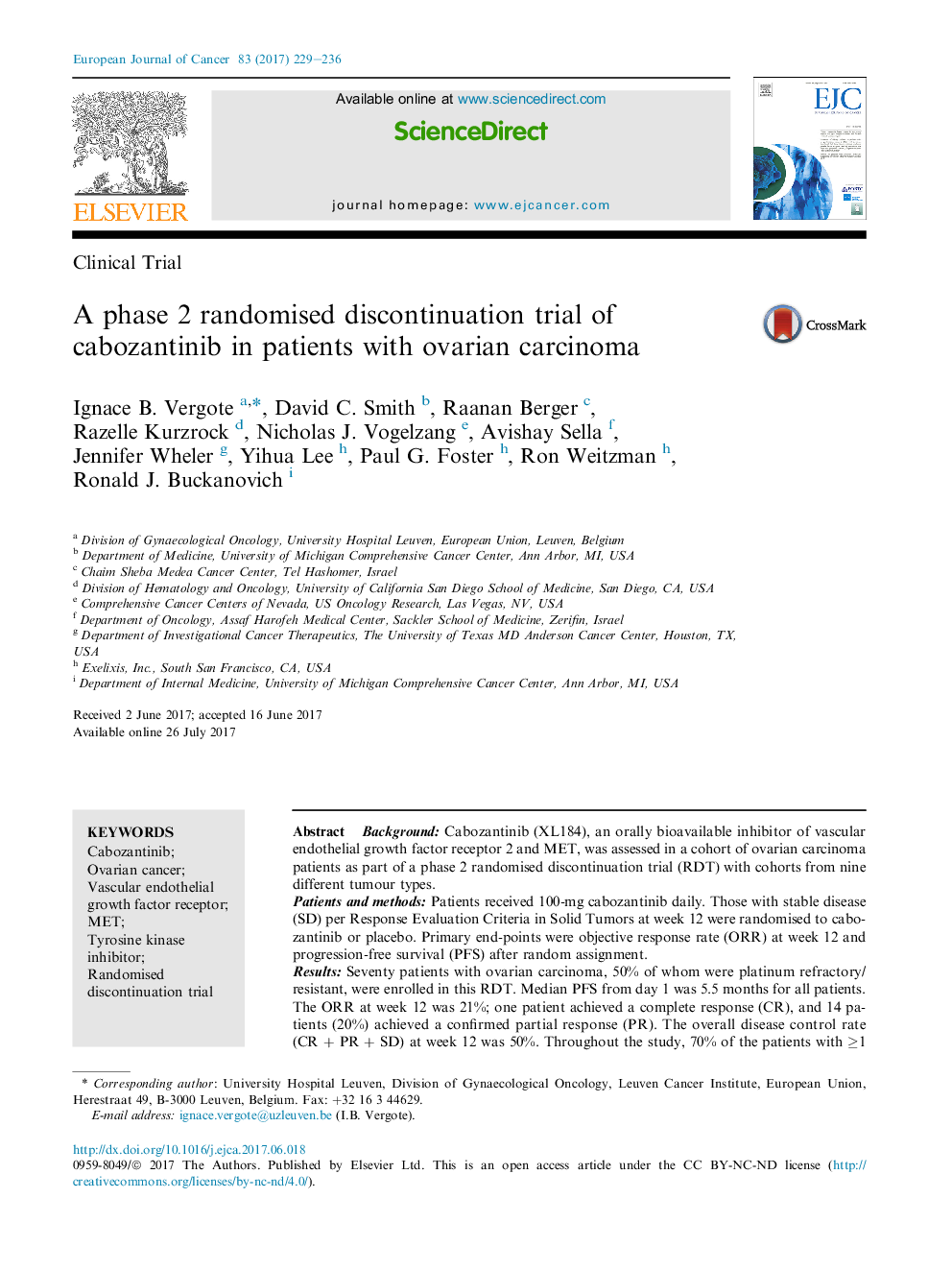| کد مقاله | کد نشریه | سال انتشار | مقاله انگلیسی | نسخه تمام متن |
|---|---|---|---|---|
| 5526390 | 1547049 | 2017 | 8 صفحه PDF | دانلود رایگان |

- Cabozantinib was evaluated in a phase 2 randomised discontinuation trial.
- Cabozantinib showed clinical activity in previously treated patients with ovarian cancer.
- The objective response rate at week 12 was 21%.
- At week 12, patients with stable disease were randomised to cabozantinib or placebo.
- Progression-free survival for cabozantinib after randomisation was 5.9 months.
BackgroundCabozantinib (XL184), an orally bioavailable inhibitor of vascular endothelial growth factor receptor 2 and MET, was assessed in a cohort of ovarian carcinoma patients as part of a phase 2 randomised discontinuation trial (RDT) with cohorts from nine different tumour types.Patients and methodsPatients received 100-mg cabozantinib daily. Those with stable disease (SD) per Response Evaluation Criteria in Solid Tumors at week 12 were randomised to cabozantinib or placebo. Primary end-points were objective response rate (ORR) at week 12 and progression-free survival (PFS) after random assignment.ResultsSeventy patients with ovarian carcinoma, 50% of whom were platinum refractory/resistant, were enrolled in this RDT. Median PFS from day 1 was 5.5 months for all patients. The ORR at week 12 was 21%; one patient achieved a complete response (CR), and 14 patients (20%) achieved a confirmed partial response (PR). The overall disease control rate (CR + PR + SD) at week 12 was 50%. Throughout the study, 70% of the patients with â¥1 postbaseline scan had tumour regression, and randomisation was discontinued early. For patients with SD randomised to cabozantinib, PFS was 5.9 months after randomisation. The most common grade 3/4 adverse events were diarrhoea (14%), palmar-plantar erythrodysesthesia syndrome (6%), asthenia (6%), hypertension (6%) and neutropenia (6%). Dose reductions were required in 37% of the patients during the first 12 weeks.ConclusionCabozantinib demonstrates clinical activity, with acceptable toxicities, in patients with ovarian carcinoma based on ORR and regression of tumour target lesions.RegistrationThis trial is registered at ClinicalTrial.gov (NCT00940225).
Journal: European Journal of Cancer - Volume 83, September 2017, Pages 229-236